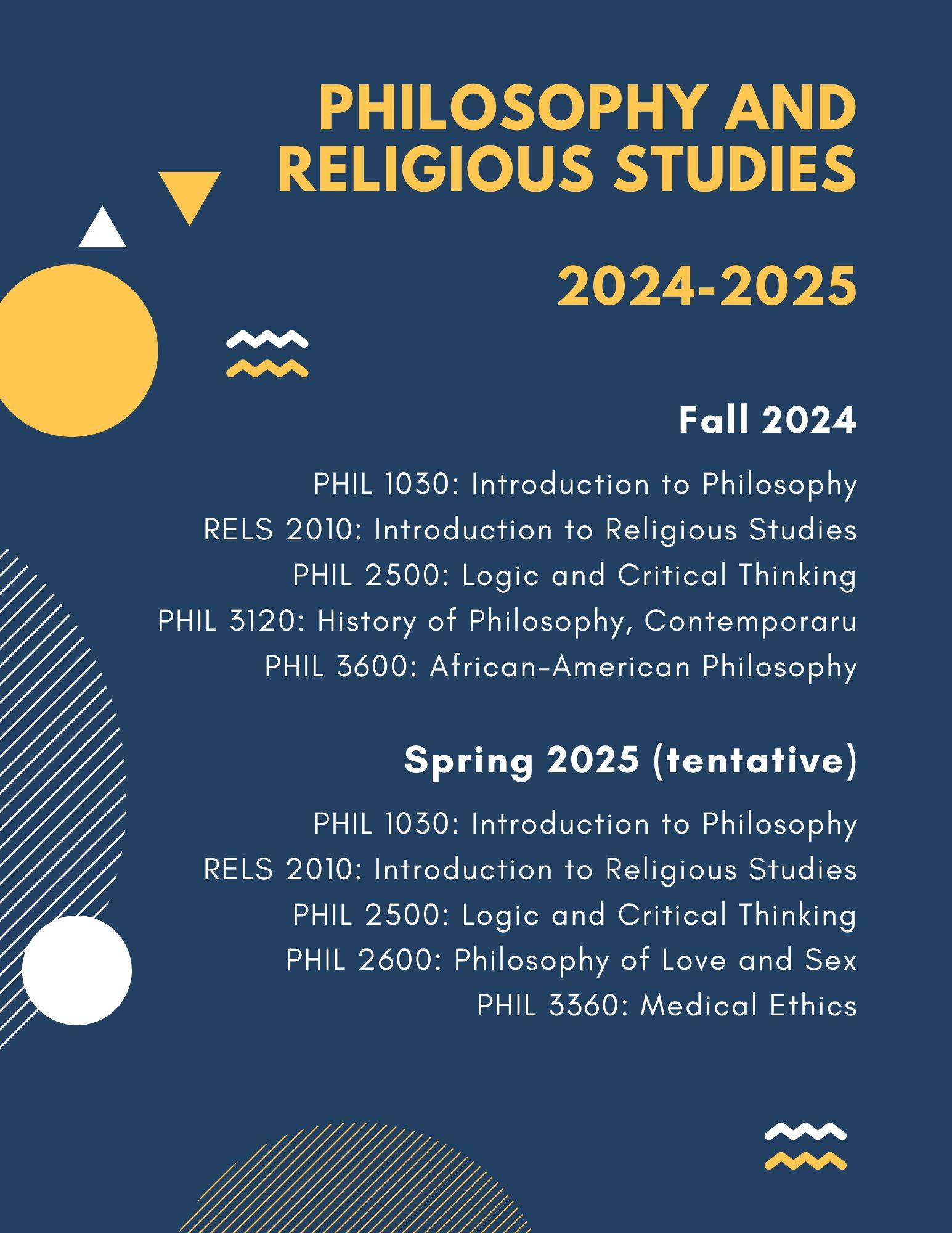Philosophy
The unexamined life is not worth living
Why study Philosophy at TSU?
Philosophy means the “love of wisdom.” In philosophy, we practice the love of wisdom by critically engaging with fundamental questions of human existence, including: What is the meaning of life? What can I know? How do I live a good life? What are my responsibilities to others? What is a just society? Do we really have free will? The questions, concepts, and tools that you learn in philosophy will equip you to live a more critical and reflective life.
|
Learning how to raise questions, even about that which one assumes is unquestionable–this is what I’ve learned from my philosophical studies, from critical theory. |
Our minor program is open to students regardless of major. It is designed to complement any of the University’s degree granting programs. Not only intrinsically valuable, but philosophy also teaches you skills that will make you more employable and better prepared for success after college. A minor in Philosophy will help you develop the fundamental skills more employers say they want. You will be better equipped to
- question critically
- think logically
- communicate clearly
- act creatively
- live ethically
Students who wish to concentrate in Philosophy may do so by fulfilling the requirements for the Arts and Sciences (Interdisciplinary Studies) B.S. degree program in the humanities, which entails taking at least 15 upper-level hours in Philosophy or Religious Studies, and 8 upper-level hours in a second discipline in the humanities (Art, English, French, Religious Studies, Spanish, or Theatre).
|
The center of my world was school, and I dove into it with a vengeance. The universe of philosophy and religion was opened to me, and I took to it like a fish to water… Now I saw philosophical and theological underpinnings for what I’d sensed and deeply felt all my life–that there was a contradiction between what was and what ought to be. - John Lewis, Member of the US House of Representatives, Philosophy and Religion major |
Departmental Requirements for the Minor in Philosophy
- 18 hours of coursework in Philosophy or Religious Studies
- 12 hours of upper-level coursework in Philosophy or Religious Studies
- 1 course in the History of Philosophy
Reach out to our faculty advisor, Dr. Charles Bowie, and make a plan to complete your minor or concentration in Philosophy today!
Undergraduate change of major/minor form

| Recent Courses in Philosophy and Religious Studies |
|
PHIL 1030: Introduction to Philosophy |
Philosophy and Religious Studies Faculty
| Dr. Julius Bailey, Instructor, Philosophy | jbaile45@tnstate.edu |
| Dr. Charles Bowie, Associate Professor, Philosophy and Religious Studies | cbowie@tnstate.edu |
| Dr. Shannon Hayes, Assistant Professor, Philosophy | shayes15@tnstate.edu |
| Prof. Babydoll Kennedy, Instructor, Philosophy and Religious Studies | bkenned4@tnstate.edu |
| Prof. Eric A MacPhail, Instructor, Philosophy | emacphai@tnstate.edu |
| Dr. James McRavion, Instructor, Religious Studies | jmcravio@tnstate.edu |
| Prof. Andrew Powers, Instructor, Philosophy | apowers@tnstate.edu |
| Rev. Dr. Raedorah C. Stewart, Instructor, Religious Studies | rstewa32@tnstate.edu |
Faculty advisor
Dr. Charles Bowie
Student Resources
- Stanford Encyclopedia of Philosophy
- Internet Encyclopedia of Philosophy
- What is it like to be a philosopher?
- Who studies philosophy?
- Philosophy podcasts
- Article: "The Earning Power of Philosophy Majors"
- Summer Institute: PIKSI-Rock


